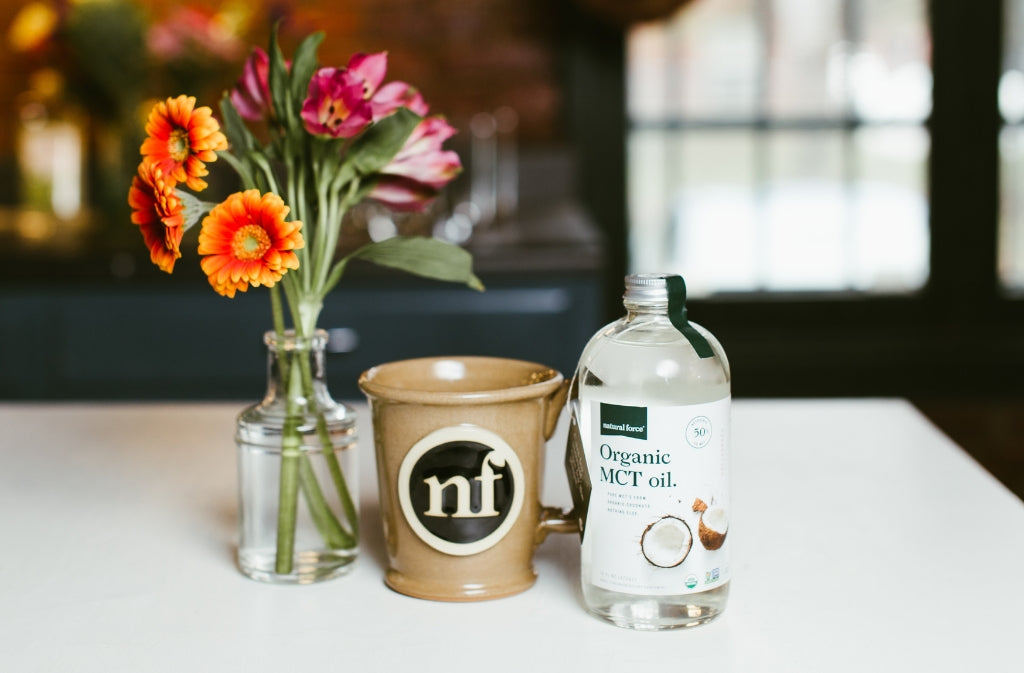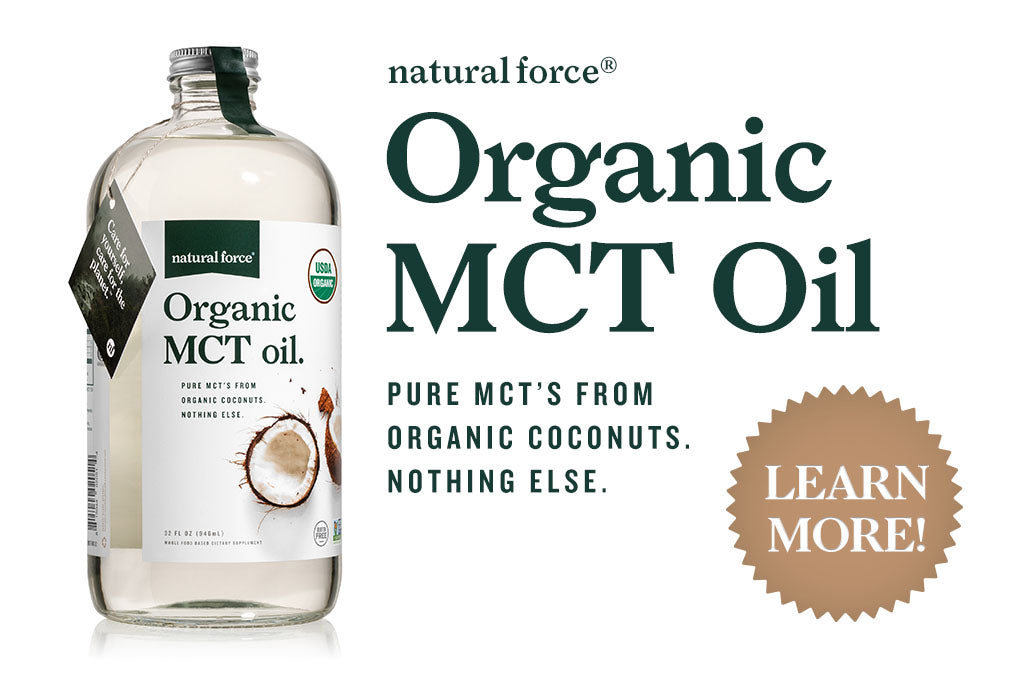MCT Oil vs Coconut Oil: Benefits, Differences & How to Choose

MCT oil and coconut oil are often mentioned together — but they are not the same. While both contain medium-chain triglycerides (MCTs), their composition, how your body uses them, and their ideal applications differ. In this guide, we’ll break down what makes each oil unique, compare their benefits (from energy and ketosis to cooking), and help you decide which one fits your lifestyle or supplement goals.
In this post, you will learn:
- What are MCTs
- What coconut oil is and its benefits
- What MCT oil is and its benefits
- Which one should you choose: Coconut oil or MCT oil?

Click here for a printer-friendly version
What are MCTs?
First off, it's important to understand that both coconut oil and MCT oil contain MCTs, also known as medium chain triglycerides.
There are four types of MCTs: capronic acid (C6), caprylic acid (C8), capric acid (C10), and lauric acid (C12). Each of these fatty acids has its own unique benefits, ranging from energy to boosting metabolism to antimicrobial properties. (If you really want to nerd out on these differences, check out this article)
It's the different ratios of these MCTs in coconut oil and MCT oil that really set them apart.
What is Coconut Oil?
Mixing fragrant coconut oil into everything from your baked goods to soups to coffee certainly isn’t new. Plenty of cultures have understood the benefits of coconut oil on some level for centuries.
Coconut oil is the oil extracted from the kernel of the coconut. This oil can be extracted in various ways, including refined and unrefined methods. Coconut oil is packed with healthy fats, more than 50% of which are MCTs. However, the ratio of MCTs in coconut is highly in favor of lauric acid (C12), giving it powerful antibacterial, antimicrobial, and antiviral properties.
While some people are still scared of saturated fat, it’s becoming more commonly accepted that coconut oil isn’t just safe; it’s good for us. Coconut’s many benefits, including its antimicrobial, antiviral, and antibacterial properties, include:
- Killing harmful bacteria and other pathogens
- Increasing your “good” HDL cholesterol
- Helping you lose fat, especially around your waistline
- Promoting skin health when used topically
What is MCT Oil?
MCT products are purified extractions of coconut oil, ensuring they contain a higher concentration of diverse MCTs (such as C8 and C10) than coconut oil does. This concentrated form of fats proves to be a highly efficient source of energy.
Typically, the MCTs found in MCT oil bypass the normal fat digestion and head straight to the liver, where they are quickly metabolized by the body and converted into energy, providing increased energy levels and fat-burning properties through supporting the production of ketone bodies, making it the popular choice for people following the keto diet.
MCT Oil also has a far more discrete taste, making it the perfect addition to your favorite sauces, soups, smoothies, and even baked goods. It’s also a popular addition to coffee and tea to help you stave off cravings and help promote fat loss!
MCT oil benefits and uses:
- It's better than coconut oil at keeping you feeling full
- Helps you lose fat
- May improve heart health
- May improve cognitive function
- Can improve blood sugar regulation
How to Choose Between MCT Oil and Coconut Oil
If you’re looking to boost fat loss and cognitive function quickly, a daily dose of MCT oil is the way to go. The concentrated MCTs in MCT oil or MCT Creamer will definitely give you more bang for your buck than coconut oil. And it’s easier for your body to break down and use.
When purchasing MCT oil, always be sure to find products with high-quality ingredients that contain no palm oil, are free from artificial colors and flavors, and contain pure expeller-pressed coconut oil.
But that doesn’t mean you should throw out your coconut oil. Virgin coconut oil is still a great source of healthy fats and tastes great in cooking and baking. You just won’t get the concentrated amount of fat-burning, brain-boosting fatty acids that you will in a tablespoon or so of MCT oil.
Frequently Asked Questions (FAQ)
What is the main difference between MCT oil and coconut oil?
MCT oil is a refined, concentrated source of medium-chain triglycerides, while coconut oil contains a mix of MCTs plus long-chain fats (like lauric acid).
Which is better for producing ketones or supporting a keto diet?
MCT oil is more ketogenic because it has more of the shorter-chain MCTs (caprylic & capric acids), which are rapidly converted into ketones.
Can coconut oil help with weight loss like MCT oil?
Coconut oil has some MCTs, but studies show MCT oil is more effective at increasing fullness and reducing calorie intake than coconut oil.
Is MCT oil good for cooking?
Not really — MCT oil has a lower smoke point, making it less suitable for high-heat cooking. Coconut oil is better for sautéing, baking, and other culinary uses.
Is coconut oil useful for skincare or beauty?
Yes — coconut oil, with its higher lauric acid content, is often used topically for skin hydration, acne, and other skin conditions.
Are there risks or side effects when using MCT or coconut oil?
Some people experience digestive discomfort (like bloating or diarrhea) when using high amounts of either oil. Start with small doses and increase gradually.
If you’re looking for creative and easy ways to incorporate MCT oil into your daily routine, check out 9 Surprising Ways to Use MCT Oil!
We welcome your thoughts on MCT and coconut oil in the comments!
(Want articles like this via email? Here's the sign up)

